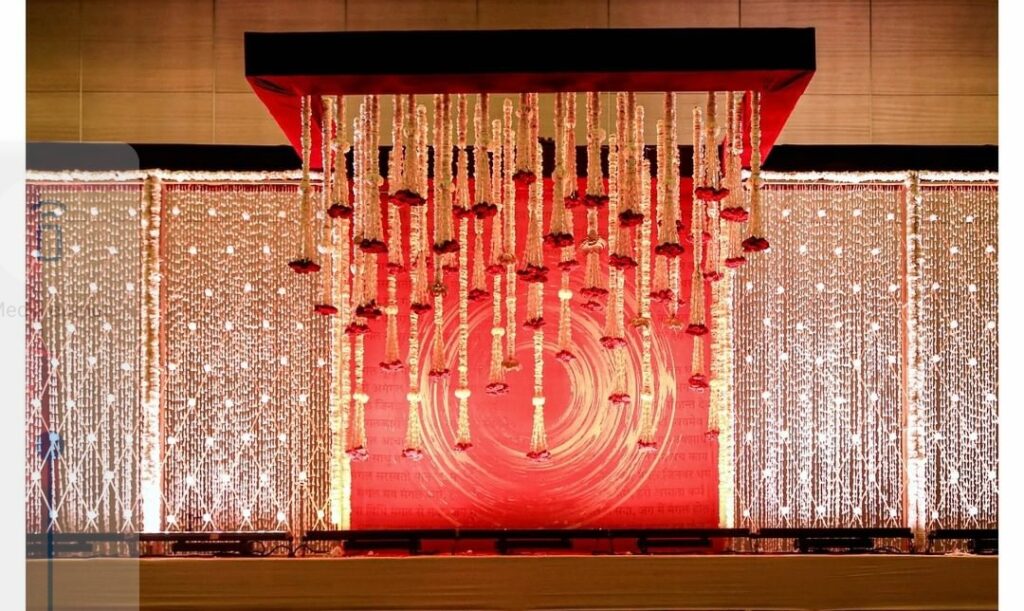
Average Reviews
Description
Memorable Event & Artist Management: Crafting Unforgettable Experiences
In the world of events, few things are more important than creating a memorable experience for attendees. Whether it’s a corporate gathering, a wedding, a music concert, or a product launch, the success of an event often hinges on how well it’s planned and executed. A crucial part of this process is the management of both the event itself and the artists or performers involved. This blog will explore the significance of event and artist management, how they work hand-in-hand, and how the combination of these two elements can create truly unforgettable experiences.
What is Event Management?
Event management refers to the process of organizing, planning, and executing events from start to finish. It involves a broad range of tasks such as coordinating logistics, handling the venue, managing guest lists, arranging catering, and ensuring that everything runs smoothly. The ultimate goal of event management is to deliver an experience that meets or exceeds the expectations of the client and the attendees.
Event management can include various types of events:
- Corporate Events: These can range from meetings and conferences to trade shows and team-building activities.
- Weddings and Private Events: Personal celebrations such as weddings, anniversaries, or milestone birthdays.
- Music and Arts Events: Concerts, art exhibitions, and festivals that feature live performances or showcases of talent.
- Product Launches: A special event organized to introduce a new product to the market.
Each of these events requires different strategies, but the core principle remains the same: delivering an exceptional experience for the people involved.
The Role of Artist Management
Artist management is the professional handling of an artist’s career. In the context of events, artist management specifically involves coordinating the performances or shows of artists, ensuring that they have everything they need to perform at their best, and managing all logistics related to the artist’s appearance.
An artist can be a musician, a speaker, a dancer, an actor, or any other type of performer. The primary responsibility of an artist manager is to handle all matters related to the artist’s performance, including:
- Booking and Scheduling: Ensuring the artist’s schedule aligns with the event’s timeline.
- Logistics and Travel: Arranging travel, accommodation, and transportation for the artist.
- Contract Negotiations: Handling the financial and contractual terms with event organizers.
- Technical Requirements: Managing any special equipment or stage setups needed for the artist’s performance.
Artist management is a critical component in any event where a performer is involved, as it helps ensure that the artist’s needs are met, leading to a successful and seamless performance.
How Event & Artist Management Work Together
For any event featuring live performances or artistic displays, the coordination between event management and artist management is key. Both elements must work in harmony to ensure that all aspects of the event are well-coordinated and that the artist has everything they need to put on a spectacular show.
Here’s how the two sides collaborate:
- Pre-Event Planning: Event planners and artist managers begin their collaboration early, aligning on the event’s objectives, audience, and the artist’s vision. They will discuss things like the stage setup, technical requirements, and timing. Both parties need to agree on the event flow to ensure that everything is properly scheduled.
- Coordination on the Day of the Event: On the day of the event, the event manager takes charge of overseeing the venue, attendees, and general event activities, while the artist manager ensures that the artist is ready to perform. Both roles communicate constantly to ensure that there is no overlap or confusion.
- Handling Last-Minute Changes: Even the most carefully planned events can face unexpected challenges, such as weather conditions, equipment malfunctions, or technical difficulties. In these cases, both the event manager and the artist manager need to quickly adapt and find solutions. A good working relationship between these two roles can ensure a smooth resolution of any issues.
- Post-Event Management: After the event, both the event and artist managers review the success of the event. For the event manager, this might mean checking feedback from attendees and sponsors, while the artist manager might assess the artist’s performance, looking for areas to improve for future engagements.
Key Elements for Success in Event & Artist Management
For a truly memorable event, both event planners and artist managers need to focus on a few critical elements:
- Clear Communication: Regular and transparent communication between the event management team and the artist manager is essential to avoid misunderstandings or logistical hiccups.
- Attention to Detail: Both sides must pay close attention to the smallest details, from the timing of the event to the technical requirements for the artist’s performance.
- Flexibility and Adaptability: Events often don’t go as planned. Having a flexible mindset and the ability to adapt quickly is crucial in managing both the event and the artist effectively.
- Understanding the Audience: The success of any event depends on how well it resonates with its audience. Event managers need to understand the audience’s preferences, while artist managers need to ensure that the artist’s performance aligns with those expectations.
- Collaborative Mindset: The success of the event hinges on the collaboration between the two sides. Event managers and artist managers should always be working towards the same goal – a memorable and successful event.
The Importance of Memorable Experiences
Memorable events don’t just happen by chance—they are the result of careful planning, effective communication, and a focus on creating a lasting impression. Both event management and artist management are crucial to this process.
- Creating Emotionally Engaging Moments: A successful event doesn’t just entertain; it evokes emotion and leaves attendees with lasting memories. By ensuring that every detail is perfect, event and artist managers help create a truly immersive experience.
- Innovative Concepts: Sometimes, the most memorable events are those that break away from the traditional. Whether it’s a unique theme, an unexpected performance, or an innovative use of technology, pushing boundaries can create experiences that attendees will remember long after the event is over.
- Quality Artist Performances: A skilled artist or performer can elevate an event from good to great. Having an experienced artist manager ensures that the artist performs at their best, providing the audience with a high-quality performance that they won’t forget.
Conclusion
Event and artist management go hand in hand to create events that leave a lasting impression. By working together in perfect harmony, both the event and artist managers can ensure that every aspect of the event is well-executed, and that the performance exceeds expectations. Whether you’re organizing a corporate gala, a wedding, or a large-scale music festival, effective event and artist management are crucial to crafting a memorable experience. Through clear communication, attention to detail, and flexibility, these professionals turn ordinary events into extraordinary ones.
Creating an unforgettable event takes time, effort, and collaboration, but the rewards—an engaged audience and a successful outcome—make it all worth it.
Claim Listing
Is this your business?
Claim listing is the best way to manage and protect your business.

